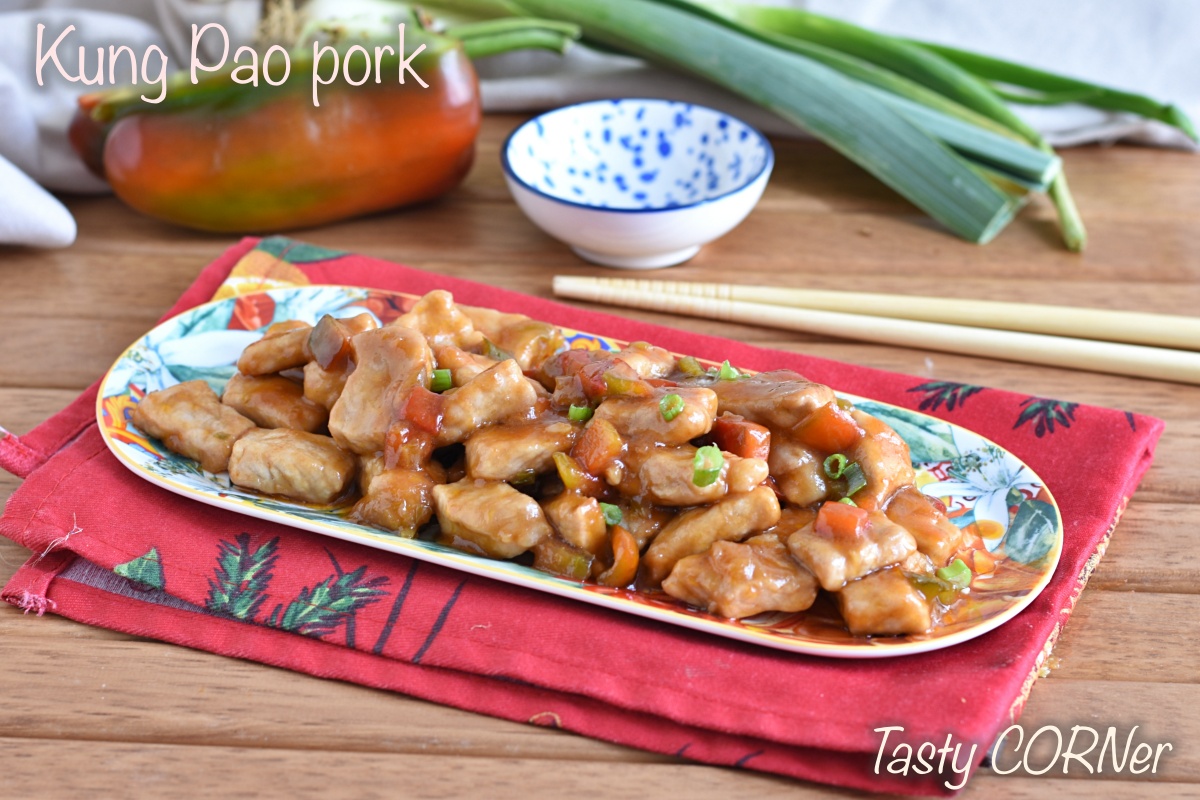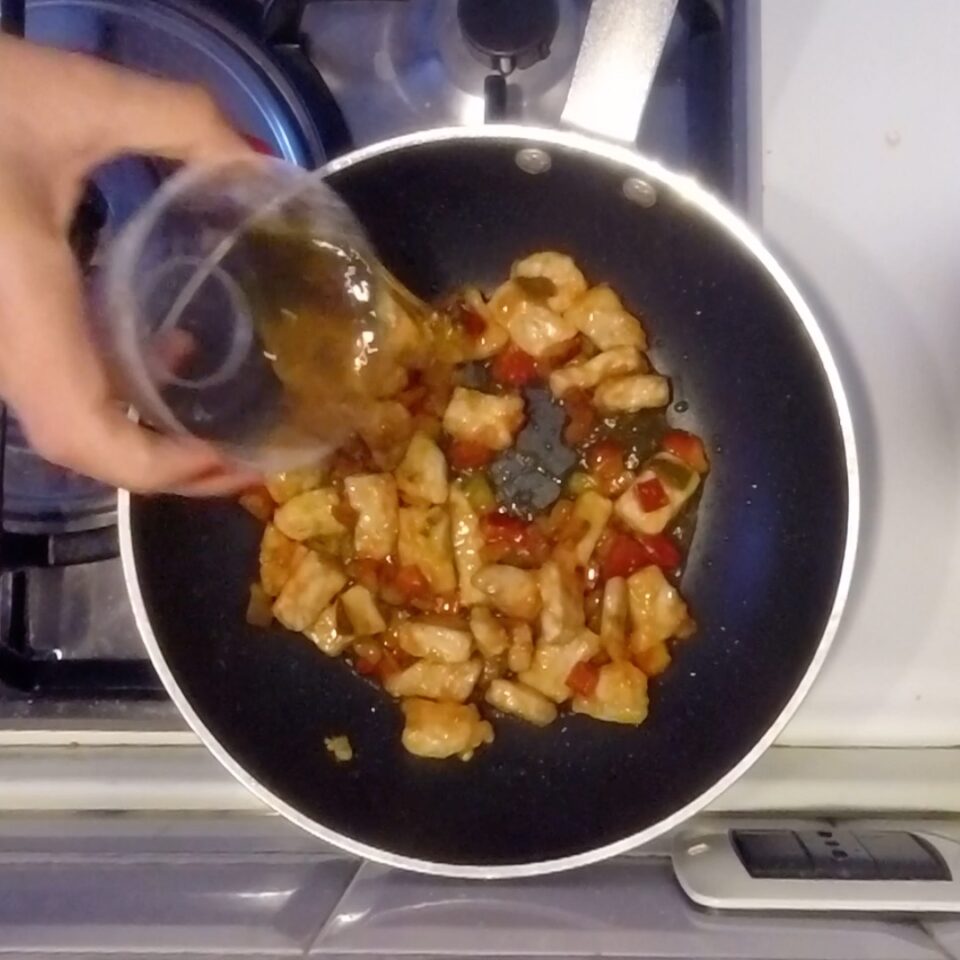Kung Pao pork is a staple of Chinese cuisine found in every Chinese restaurant in the world, known and appreciated for its peculiar taste by Asian food lovers. Tender, tasty, sweet-and-sour and covered in silky, glossy sauce, Kung Pao pork is the perfect course to amaze your hosts with new flavours an exotic preparations.
Kung Pao pork recipe is very simple: the sour taste is given by rice or wine vinegar, while the sweet one by sugar. Alternatively, some versions foresee the use of sugary fruit – such as pineapple – to sweeten the Kung Pao pork; my personal preference goes to the simpler version, in which the pork meat is accompanied by pretty common vegetables (bell peppers and spring onions) and then seasoned with soy sauce. As with other Chinese dishes (such as Cantonese fried rice, dumplings, …) also Kung Pao pork can be easily prepared at home with great results, provided that care is put in not overcooking the meat, which would then lose its tenderness.
Check out these recipes too:

Video recipe of the day
- DifficultyEasy
- CostVery cheap
- Preparation time15 Minutes
- Cooking time10 Minutes
- Serving4 servings
- Cooking methodStove
- CuisineChinese
- SeasonalityEvergreen
Kung Pao pork ingredients
Tools
How to make Chinese Kung Pao pork at home
Start preparing Kung Pao pork by chopping the spring onion and put it aside. Rinse and dry the bell pepper, then cut it open in half and remove the stem, seeds and pith. Cut and then dice it,

Dice also the pork loin and put it in a bowl. Add the all-purpose flour and briefly mix it by hand, in order to cover well all the meat.

Put it in the strainer to remove excess flour. Heat the vegetable oil in the wok or a big and tall non-stick pan.
When it is hot add the vegetables (spring onion and bell pepper), slightly salt it and cook it on high heat for 2 minutes, stirring often.

Add then the meat, salt it as well and cook it until it’s brown an all sides, stirring often on keeping high heat. After 2 or 3 minutes the meat will be well seared. Now add the tomato paste.

Stir to distribute it evenly on the meat. Add the sugar and stir some more. Now raise the heat to the max and deglaze with the vinegar quickly mixing and letting it evaporate, until its typical smell has faded.

Lower the heat and add the soy sauce. Cook for 2 more minutes, stirring often, until the gravy thickens.

Remove the wok or pan from the heat and immediately serve your Kung Pao pork.
Conservation
Kung Pao pork should be immediately eaten after cooking, but if you want to keep some left-overs put them in the fridge, in an hermetic container, up to a couple of days.
Tips and variation
Kung Pao pork, beside spring onion and bell pepper which give it its peculiar taste, can be made adding also other vegetables: carrots, Chinese cabbage, leek… Just remember to chop the vegetables in small pieces, so that they will cook quickly.
If you want to use ready-made Kung Pao sauce, add it when the meat is seared, removing sugar, vinegar and tomato paste from the ingredient list.
Varied doses for servings
